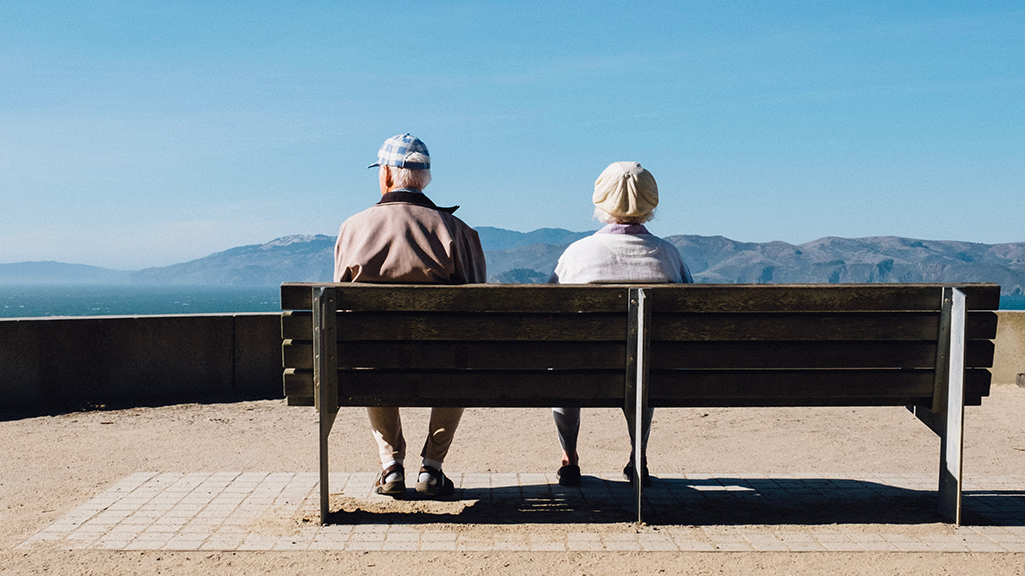Pandemic fatigue, symptoms of depression, and a drop-off in social relationships discourage the elderly from carrying out physical activities
A study reveals the factors that have negatively impacted this group's activity levels during the lockdownAn expert in geriatrics offers five tips for returning to physical activity

The elderly have been some of those most affected by the COVID-19 pandemic, not only in terms of infection and death rates, but also because of the impact of social distancing measures and restrictions on movements. The member of the UOC's Faculty of Health Sciences Marco Inzitari, head of the group Aging, Frailty and Transitions in Barcelona, at the Vall d’Hebron Research Instiute, located in the Parc Sanitari Pere Virgili, has led a study on persons living in Barcelona that shows how symptoms of depression, fatigue and limited social relationships have negatively impacted the levels of physical activity in the elderly during the COVID-19 lockdown in Spain. The study shows how physical activity levels depend upon a range of factors and that, accordingly, when helping the elderly, account needs to be taken of different aspects of their lives.
The research, which had begun before the pandemic to assess the impact of a frailty intervention programme, has the advantage of employing the same tools and comparing the situation of participants before and after the strict lockdown. The programme in question, +ÀGIL Barcelona, promotes health and healthy ageing amongst especially frail elderly people and provides participants with tips on physical activities. “Still-relatively independent people showing signs of frailty, albeit at a very early stage, are identified as ideal candidates for intervention,” noted Inzitari, who is also a member of the Spanish Ministry of Science and Innovation's multidisciplinary COVID-19 group. The study has entailed the dynamic monitoring of a total of 98 people.
Amongst its conclusions are that factors leading to a decline in people's physical activity levels during the lockdown included living alone (38%), prior symptoms of depression (21.9%) and self-reported fatigue during the pandemic (38.1%). On the other hand, those who reported having social contact with people other than family members (46.9%) and having kept up their reading activities (26.5%) during the lockdown showed much higher physical activity levels.
In the researcher’s opinion, these figures provide evidence of an "array of factors" that contribute to a"reduction in physical activity,” and that can be linked with both health and social aspects. Factors contributing to a drop-off in physical activities can be associated with limits on social interactions and with the biological effects of reduced mobility, for example. “On the one hand, there are aspects that predate COVID-19, such as symptoms of depression, but there are also social relationships, the perceived fatigue stemming from the situation around the pandemic and associating with a smaller social network,” stated the expert.
The many causes leading to this reduction make it clear that programmes encouraging a return to physical activities for those affected “cannot be limited to the simple provision of tips and recommendations,” noted Inzitari. The UOC faculty member argued that “we also need to progressively help these people restore their social relationships: we have to look after their emotional state of mind, because physical activity alone won't bring us the desired results.” It has been shown that the negative effects of ageing are associated not only with health, but also with one's social environment and certain psychological factors. “Intervening in one single thing won't change the situation, because the approach needs to be highly systemic and cross-disciplinary: with the involvement of healthcare workers (primary healthcare), geriatricians, social services, the tertiary sector and carers,” he remarked. Inzitari highlighted how this experience has shown the importance of promoting healthy ageing, to allow us to overcome similar situations in the future, and therefore stressed the value of “health promotion and prevention at all ages.”
The UOC member of faculty also underlines the importance of introducing a digital component into programmes aimed at the elderly. “We need to emphasise that there are apps and programs that help provide this digital assistance in recovering mobility,” he observed. However, apps need to be reliable and “there also needs be some kind of oversight from healthcare professionals.”
5 tips for getting back to physical activity after the lockdown
- Do at least two and a half hours of moderate physical activity (such as a brisk walk rather than a leisurely stroll) per week. This can be split up over different times every day or done on certain days of the week. Walking alone is not enough: you also need to strengthen your muscles, particularly those of the legs, by doing simple exercises such as squats, placing a chair behind you for safe.
- You can also use some apps, like the (free) ViviFrail, which checks your fitness with a few exercises and recommends a tailor-made programme for you.
- Everyone needs to find the activity and arrangement or system that best suits them, as this will help to ensure that physical activity becomes part of their regular routine. Obviously, it's better to do anything rather than nothing at all, and it helps if what you do is enjoyable.
- It's also important to remember other aspects such as nutrition (with a varied, enjoyable diet based around proteins, fruit and vegetables, the right amount of dairy, and keeping a careful eye on carbohydrates and fats), as well as sleep (here, keeping physically active and regular routines will also help you to sleep better).
- Keep generally active, enjoy hobbies and interests, and, above all, keep up with and nurture social relationships with family and friends. In person, if possible (we hope that this will soon be the case again with the COVID-19 vaccines), or otherwise online.
Experts UOC
Press contact
-
Editorial department
